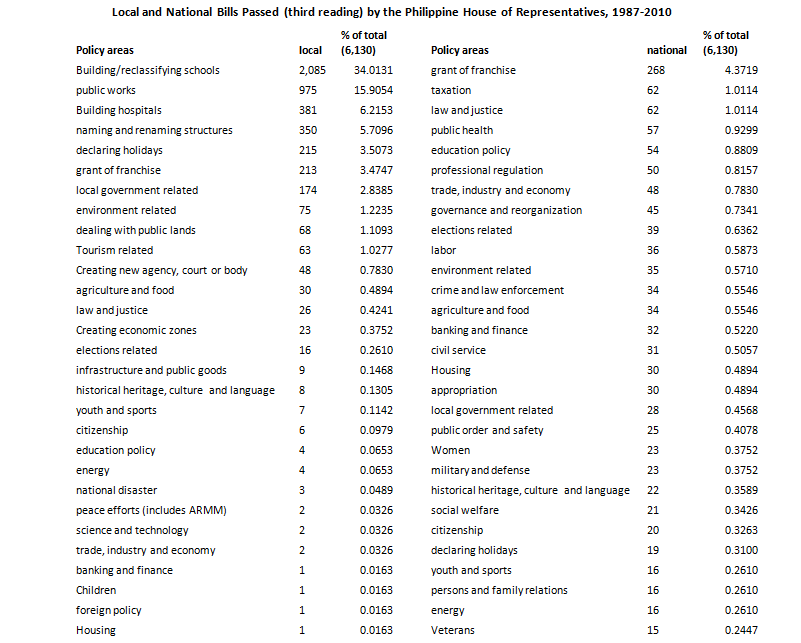by Dr. Alicor Panao
It must have been a shock for health officials and public health advocates to have learned that about a billion pesos was slashed from the Department of Health’s budget. The amount, allocated for the purchase of reproductive health commodities, was reportedly stricken out surreptitiously during the bicameral conference for the 2016 budget bill.
Reproductive health are among the issues considered priority by majority of Filipinos. Pulsa Asia’s 2007 survey on family planning, for instance, shows that an overwhelmingly majority of Filipinos believe in the importance of family planning and in government’s duty to provide budgetary support for it. Its 2010 survey, on the other hand, indicated that about seven out of 10 Filipinos agree with the reproductive health provisions of what would become the Responsible Parenthood and Reproductive Health Act of 2012. The more recent 2015 Ulat ng Bayan, meanwhile, reveals that controlling the burgeoning population is among the ten most urgent concerns (although less pressing compared to the need to control inflation and increasing workers’ pay).
If legislators are supposed to champion the aspirations of their constituents, then those who orchestrated the slash betrayed their mandate. Could this be an isolated case of one or two legislators reneging on their duty? Unfortunately, the pattern of legislative output in the past two decades suggests such inadvertence is collective.
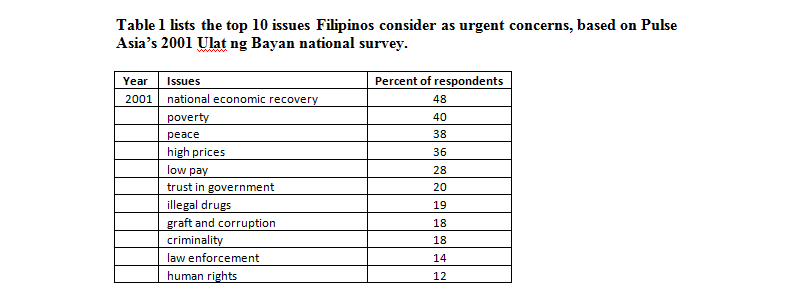
For 2004, the list was pretty much the same.

In general, Filipinos consider socioeconomic issues as urgent matters. They regard the need to control rising prices and economic rebound as priority issues the government must tackle. The year 2006 is a case in point.

We also see it even in the more recent 2015 Ulat ng Bayan survey.

We expect our representatives to respond to these issues and work for more laws that address these concerns. However, as far back as the restoration of democracy in 1987, Congress has been pretty much consistent in what it regards as policy priorities. The tables below show the most common areas of legislation from the 8th to the 14th Congress.
These are bills that have passed the third reading at the House of Representatives, during all post-Marcos administrations, except that of Benigno Aquino III.
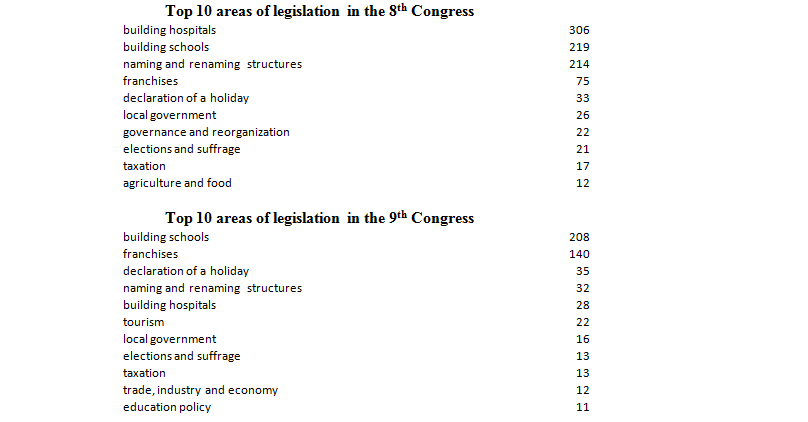
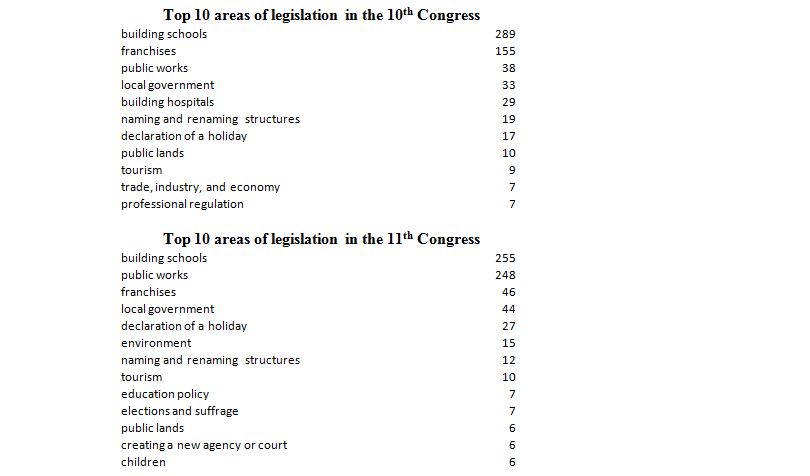
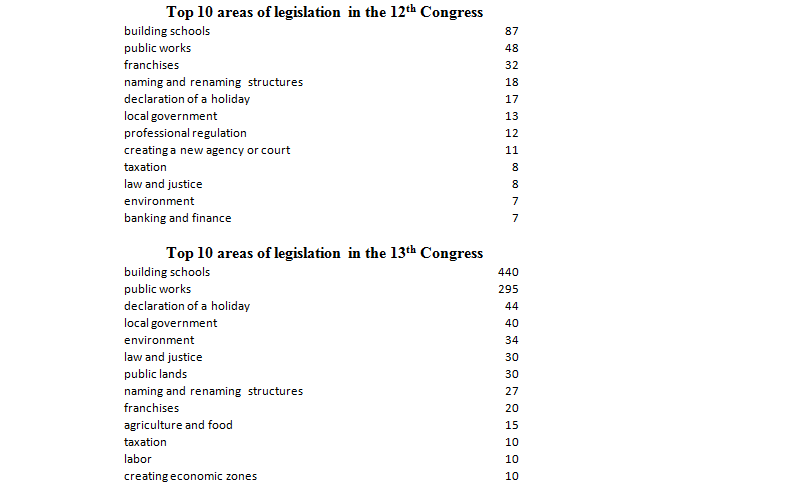

With the types of laws passed since 1987 it can be observed that there is a particular tendency toward local and private laws—in particular, laws that provide local infrastructure projects such as the construction of school buildings, hospitals, and other public works. But this should not come as a surprise because constituencies expect representatives to bring home as much of the bacon (or “pork” when it was still warranted prior to Belgica v. Executive Secretary). By theory, reelection-conscious politicians eager to make a maximal reputational impression on prospective voters will try to deliver projects into their districts to bolster their reelection bid, according to authors, Shepsle, Van Houweling, Abrams and Hanson. Constituencies, in turn, are no stranger to large billboards in front of school buildings or by the roadside publicizing how these edifices were made possible through the auspices of their honorable representatives. Moreover, these types of legislation are issue neutral, non-controversial, and unlikely to spark debate among colleagues in Congress. It may only be incidental that it is also in such local infrastructure projects that many unexplained disbursements take place.
Interestingly, even on laws considered to be of national significance, the most frequent areas of legislation are still “low risk” (see table below). Obviously, the grant of legislative franchises to corporations to operate a business or to exploit natural resources is a favorite area of legislation, even on laws of national significance. Franchises certainly are important to invite investments and to create jobs but must it take precedence over more salient legislation such as taxation or public health?
Representatives, by definition, are supposed to advocate for the collective aspirations of the public. Ideally, therefore, legislative enactments must also reflect the policy demands of the people. But legislators are also rational, and they assume that constituents will reward them with reelection in return for the program benefits they bring home.
Is there an alternative? If it is any consolation, Stein and Bickers (1994) found that only the electorally “vulnerable” politicians benefit from distributive spending, which they pursue to address their thinning reelection prospects. We cannot expect politicians in the Philippines to change anytime soon, however, unless the voters themselves take on a major paradigm shift.
